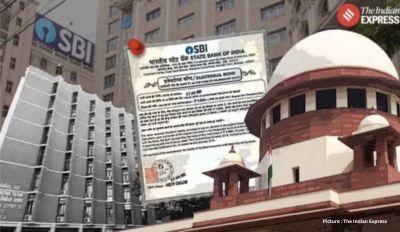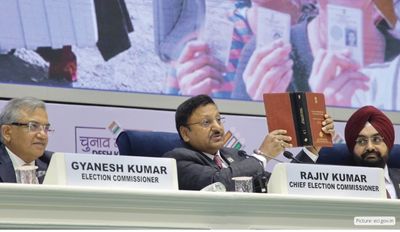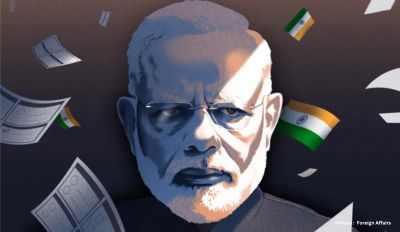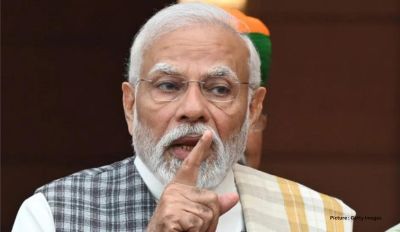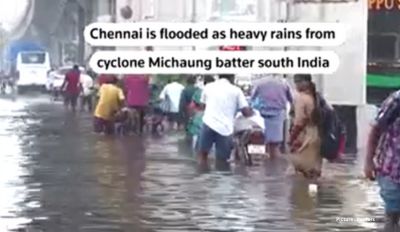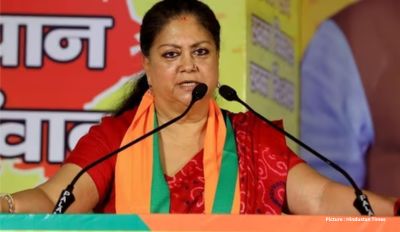An elderly Indian Jesuit priest languishing in jail on a treason charge has sought a copy of his laptop hard drive after a US-based digital laboratory reported that a hacker had planted incriminating evidence in the computer of another accused in the same case.
Father Stan Swamy, 84, is among 16 people accused of collaborating with a banned Maoist group to organize violence in the Bhima Koregaon area of Maharashtra after a clash there killed one person and injured several on Jan. 1, 2018.
The National Investigation Agency (NIA), a federal anti-terror combat agency, arrested Father Swamy on Oct. 8 and remanded him in custody in a jail in Mumbai, the capital of Maharashtra. His bail applications have been repeatedly rejected.
“Father Swamy has sought a cloned copy of his laptop and hard drive, which the NIA should have given him following his arrest, but to no avail,” Father A. Santhanam, who is closely following the case, told UCA News on Feb. 14.
Father Swamy’s counsel presented a detailed argument before the NIA court on Feb. 12 for his demand for a cloned copy of the laptop and hard drive. The court directed the lawyer to approach the NIA office.
The court also heard another bail application of the priest but the NIA, which continues to investigate the case, sought time until Feb. 16 to submit the case diary to help the court decide on bail.
Father Santhanam, a Jesuit lawyer practicing in southern India, regretted that the NIA was obstructing the bail demand of Father Swamy, who is suffering from Parkinson’s disease among other age-related health issues.
Before his arrest, Father Swamy had expressed concern that investigators could manipulate his computer, which they confiscated from him, to plant proof of his collaboration with Maoists and other allegations against him.
His fears gained ground as Arsenal Consulting, a Massachusetts-based digital forensic laboratory, said on Feb. 11 that a hacker had planted incriminating evidence in the computer of Rona Wilson, among the accused in the case.
The US firm analyzed an electronic copy of Wilson’s laptop and concluded that an attacker used malware to infiltrate the laptop and plant documents on it.
The attacker created a hidden folder and at least 10 incriminating letters were delivered into it without the knowledge of Wilson, who is also languishing in jail like Father Swamy.
The NIA arrested Wilson and accused him of colluding with Maoist rebels in conspiring to assassinate Indian Prime Minister Narendra Modi, mostly based on the incriminating documents.
The unidentified attacker, the report said, used malware to control and spy on the laptop. Subsequently, Wilson received emails that appeared to be from a fellow activist urging him to click on a link to download an innocuous statement from a civil liberties group. But this link deployed the malicious software that allowed a hacker to access Wilson’s computer.
The report shows how the attacker had retained access to Wilson’s computer for over 22 months, starting June 13, 2016, and used a remote access facility for planting the incriminating letters while conducting the surveillance on his activities without Wilson getting a hint of it.
The forensic lab also found that the malware logged Wilson’s keystrokes, passwords and browsing activity, raising doubts about the credibility of the NIA evidence against those arrested.
Rights groups say all the 16 arrested are rights workers who at some point criticized or opposed policies of the federal government run by the pro-Hindu Bharatiya Janta Party (BJP).
Two top academies to Govt: new webinar rules could halt all scientific discussion
A recent order, issued on January 15 asks all government entities, including publicly funded educational institutions and universities, to “seek approval” of the respective “administrative Secretary” for organizing any “online/virtual international conferences/seminars/training etc”.
India’s two largest and oldest science academies have written to the Ministry of Education — and the third is considering joining in — to say that its recent order mandating institutions to seek Government clearance for all webinars could “lead to a complete halt of all topical scientific discussions” and “impede” the interest of science among the young.
The Indian Academy of Sciences, the Indian National Academy of Sciences and the National Academy of Sciences, India, together include more than 2,500 of India’s top scientists. The first two have sent separate letters to Union Education Minister Ramesh Pokhriyal seeking withdrawal of these “blanket restrictions.” Sources said the third is considering supporting this petition.
The order, issued on January 15 — in the wake of new procedure notified by the Ministry of External Affairs last November — asks all government entities, including publicly funded educational institutions and universities, to “seek approval” of the respective “administrative Secretary” for organizing any “online/virtual international conferences/seminars/training etc”.
It also says that the Ministry, while granting permission to hold such events, must ensure that the subject matter of the event did not relate to the “security of the State, border, northeast states, UT (union territory) of J&K, Ladakh, or any other issues which are clearly/purely related to India’s internal matters”.
Earlier, organisers needed political clearance for foreign guest speakers at (non-virtual) seminars to come to India but no prior approval was needed for the subject on which they were speaking. There was also no specific category banned as “India’s internal matters.”
In his letter to Pokhriyal, Partha Majumder, president of Indian Academy of Sciences, said: “The Academy strongly believes that security of our nation needs to be protected. However, imposing a blanket requirement for obtaining prior permission to organize virtual scientific meetings or training programmes ‘which are clearly/purely related to India’s internal matters’ – without defining what is meant by ‘India’s internal matters’ – is too constraining for the progress of science in India.”
Majumder, one of India’s most distinguished bio-statisticians and the founding director of Kalyani-based National Institute of Biomedical Genomics, said the order did not even define “India’s internal matters” or make it clear what was meant by “international” in the context of online events.
“Even if all speakers and trainers are scientists of Indian institutions, it is possible for scientists from institutions outside of India to listen to a lecture delivered online, ask questions and participate in discussions. It is unclear to the Academy, whether such events will be considered an ‘international’ (one), and prior clearance needs to be sought. If so, it is tantamount to obtaining clearance for all collective scientific events, which will lead to a complete halt on all topical scientific discussions within India, since a large number of applications would be waiting for approval at any point of time and timely clearance of applications will not be obtained,” Majumder wrote.
His letter also points out that the order is applicable only to government institutions. “This imposes a severe constraint on scientific pursuits in public, but not in private institutions. The Academy considers this inappropriate,” he wrote.
Speaking to the media, Majumder said webinars and online events had opened new horizons for the country’s scientists, especially the younger ones and students. “It used to be extremely difficult to invite a Nobel laureate, for example, for your event. For the webinars, however, even smaller and lesser known institutes can invite and listen to the most renowned subject experts.”
But the new rules, he wrote, “will impede the growth of educational opportunities and interest in science for the younger generation in India.”
Chandrima Shaha, a biologist at the Delhi-based National Institute of Immunology who is president of the Indian National Science Academy, told The Indian Express: “On behalf of Indian National Science Academy, I have also sent a letter to the Education Minister, supporting the ideas expressed in Majumder’s letter.” Majumder said he would not seek government approval for the upcoming events that he was organizing.
“We are doing a series of events on Gandhian science. These do not involve any discussion on internal matters, as I understand it, or any other thing mentioned in the government order. So, there is no need to seek prior approval,” he said.
Majumder’s letter was copied to K Vijay Raghavan, Principal Scientific Advisor to the Government of India and Sanjay Dhotre, Minister of State for Education. The Indian Express contacted the offices of Raghavan and Pokhriyal but they were unavailable for comment.

